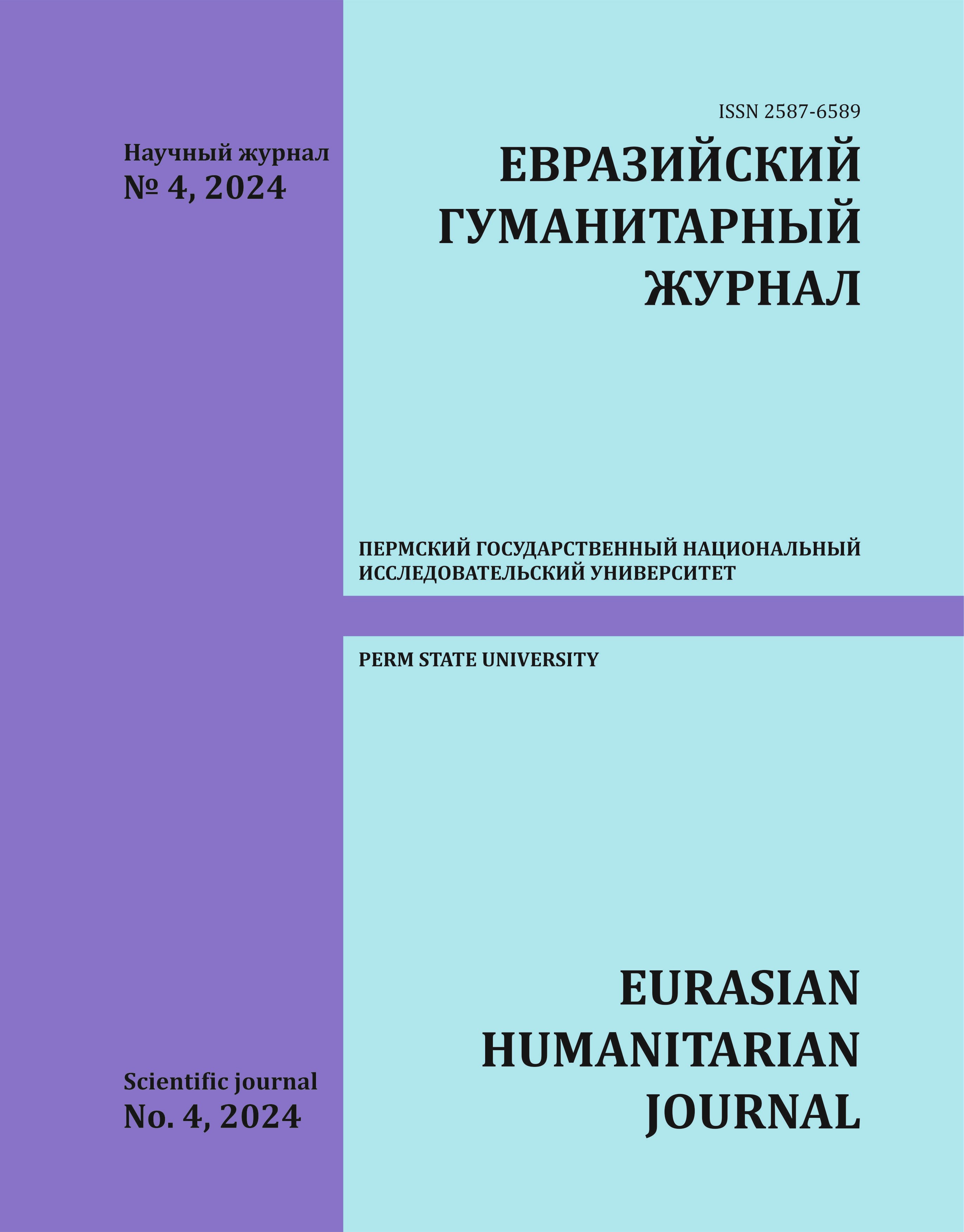A STRATIFICATION STUDY OF THE SIGNIFICANCE AND STRUCTURE OF LEXEMS 勤劳 (DILIGENCE) IN THE LANGUAGE UNDERSTANDING OF CHINESE STUDENTS
Keywords:
value, language consciousness, word, semantic structure, component analysisAbstract
The aim of the study is to identify and describe national peculiarities of meaning and specific meanings attached to the lexeme 勤劳 (diligence), as well as to model its semantic structure. The material of the study was semantic components obtained from different social groups united by strata: level of education, speciality and gender. The method of component analysis and the method of constructing the semantic structure of a lexeme were used in the course of the work. Based on the results obtained, the author concludes that in understanding the lexeme 勤劳 (diligence), Chinese students indicate goal-oriented labour and hard work. The analysis of the material by social strata shows the difference of understanding of the lexeme 勤劳 (diligence) in the group consciousness of informants: for undergraduate students diligence is closely connected with selfless service to a cause; graduate students see it as a traditional value, where striving for progress, awareness of work and balance between work and leisure are defined as important. In the group of humanitarians the value component is traditional culture, and in the group of non-humanitarians – awareness of work and love of work. In the core of men's linguistic consciousness the semantic component of working hard and with desire is important, while in the core of women's linguistic consciousness it is the goal-setting of diligence. Besides, only women are characterised by the semantic component of determination in diligence.Downloads
Published
2024-12-20
Issue
Section
СОЦИОЛИНГВИСТИКА

